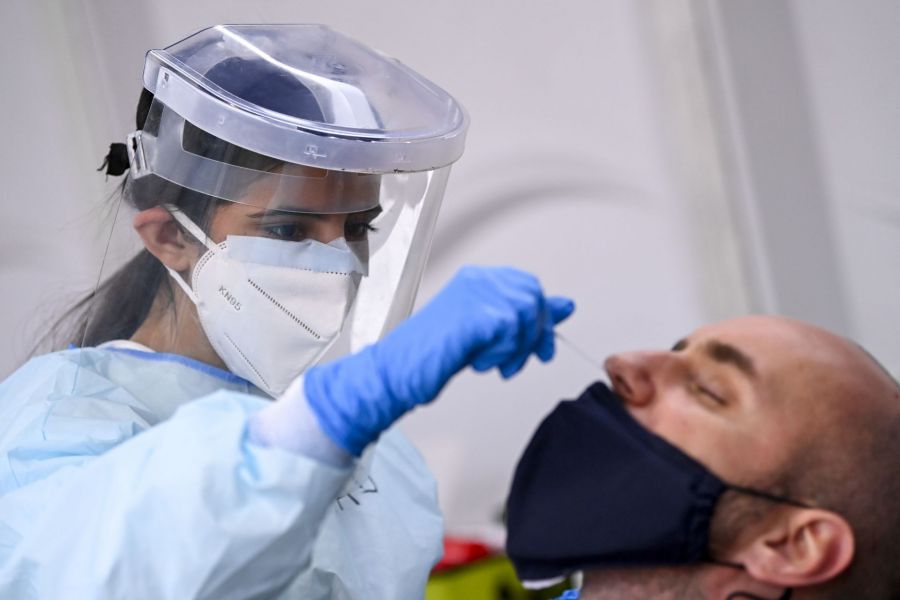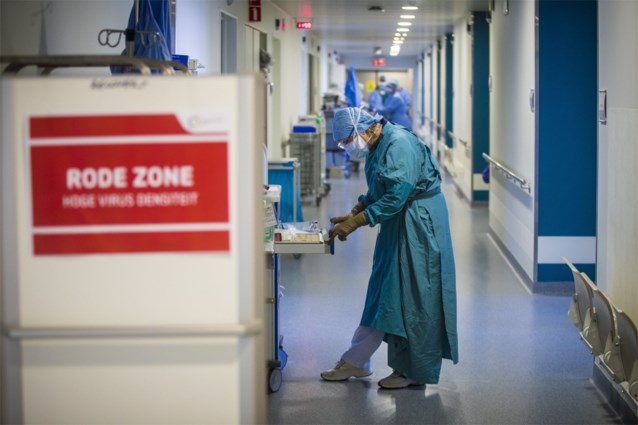The number of Covid-19 hospitalisations in the country continues to rise and has now surpassed 220 per day, however, the rise in cases seems to be stabilising.
Between 25 and 31 March, an average of 220.4 patients suffering from Covid-19 were admitted to hospitals each day – an increase of 17% on the seven days previous, according to the figures published by the Sciensano Public Health Institute on Friday morning.
This number reflects how many people end up in hospital specifically because of the virus, not those who are admitted with another condition and then test positive for the coronavirus.
"The number of coronavirus infections and hospitalisations due to COVID-19 continues to increase. The increase seems to be levelling off in Flanders, but not yet in Brussels or Wallonia," virologist Steven Van Gucht said during a press conference on Friday.
On Thursday, a total of 2,979 people were in Belgian hospitals due to an infection, 59 more than on Wednesday. Meanwhile, the number of people being treated in intensive care continues to decline overall, and now sits at 172 (+8), down from some 400 two months ago.
This number covers all patients who tested positive for Covid-19, including those who were first admitted with a different condition.
Increase in cases slowed down
Between 22 and 28 March, an average of 11,183 new coronavirus infections were identified every day, a 6% increase from the previous seven days.
The highly transmissible Omicron subvariant, Omicron BA.2 variant, is accounting for 90.4% of all cases and has been blamed for the rise in cases across many countries.
The average number of PCR tests taken per day in the same period inclined by 8% to 38,831.9 The positivity rate now sits at 31.2%, meaning more than three out of ten tests has a positive result.

Credit: Belga
During the same week, an average of 22.6 Covid-19 patients died on a daily basis, an increase of 14%. The total number of deaths in Belgium since the start of the pandemic amounts to 30,826.
This figure also includes people who died of another cause of death, but who happened to be infected, meaning they are an overestimate of the deaths caused by the virus.
Reproduction rate, incidence, and total vaccinations
The reproduction rate (Rt) now sits at 1.11. This figure represents the average number of people that contract the virus from each infected person. When it is above 1, it means that the epidemic is gaining ground in Belgium.
The incidence (the number of new cases per 100,000 inhabitants) has once again started to rise rapidly and now sits at 1,322 over the past 14 days.
Related News
- Belgium to vote on healthcare worker vaccine mandate on Friday
- Covid-19: One-third of world population 'totally unvaccinated'
As of Tuesday, more than 9.12 million people are fully vaccinated – 89% of Belgium's adult population and 79% of the total population.
Meanwhile, more than 7.1 million people have received a booster dose of a coronavirus vaccine, representing 75% of over-18s and 62% of the entire population.
As of this week, the frequency of Sciensano's update on the epidemiological situation will be adjusted. Although it will continue to closely monitor the Covid situation in the country, it will also publish an update twice a week — on Tuesday and Friday — rather than on a daily basis.

